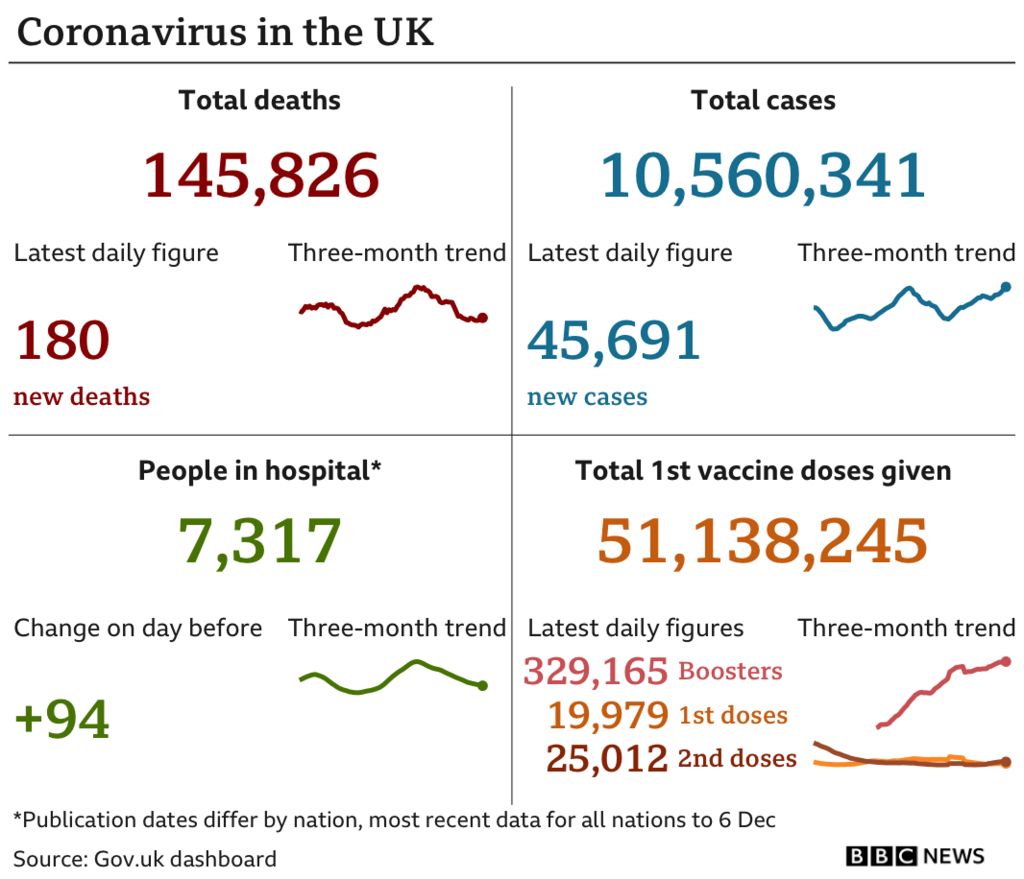According to a World Health Organization (WHO) official, existing immunizations should still protect those who get the Omicron strain from severe Covid cases.
It comes as preliminary lab testing in South Africa suggest the new version can partially resist the Pfizer vaccine.
According to the researchers, the vaccine’s antibodies had a “significant reduction” in their ability to neutralize the new strain.
Dr. Mike Ryan of the WHO, on the other hand, said there was no indication that Omicron would be better at evading vaccines than other variations.
“We have incredibly effective vaccinations that have shown effective against all the variants so far, in terms of severe disease and hospitalization, and there’s no reason to anticipate that it wouldn’t be the same” for Omicron, according to Dr Ryan, WHO’s emergencies director.
- Porto 1-3 Atletico Madrid: Griezmann helps Simeone’s men reach knockout stage
- Tottenham is dealing with a Covid-19 outbreak ahead of their Europa League match against Rennes.
He said initial data suggested Omicron did not make people sicker than the Delta and other strains. “If anything, the direction is towards less severity,” he said.
The new South African study – which has not yet been peer-reviewed – found the Pfizer/BioNTech vaccine may result in up to 40 times fewer neutralising antibodies against Omicron than against the original Covid strain.
But Omicron’s ability to escape vaccine antibodies is “incomplete”, said Prof Alex Sigal, a virologist at the Africa Health Research Institute, who led the research.
He said the results, based on blood tests from 12 people, were “better than I expected of Omicron”.
Prof Sigal said vaccination, combined with previous infection, could still neutralise against the variant. That suggests boosters may bring a significant benefit.
Scientists believe previous infection, followed by vaccination or a booster, is likely to increase the neutralisation level and will probably protect people against severe disease.
More data on how well the Pfizer jab works against Omicron is expected to be released in the coming days.
There is no significant data yet on how the Moderna, Johnson & Johnson and other jabs hold up against the new variant.

Omicron is the most heavily mutated version of coronavirus found so far.
It was first identified in South Africa, where there is now a surge in the number of people catching Covid multiple times.
UK Prime Minister Boris Johnson’s spokesman said early signs suggested Omicron could be more transmissible than the current Delta strain.
But Omicron’s ability to cause severe disease is not yet clear.
Dr Anthony Fauci, the top US infectious diseases expert, said early evidence suggests Omicron could be more transmissible but less severe.
There have been more than 267 million cases and more than five million deaths around the globe since the pandemic started in 2020, according to data from Johns Hopkins University.
Some drop-off is not surprising.
The amount seen in this small study is in the ballpark of what scientists were expecting given the substantial mutations that Omicron has compared with original Covid that the vaccines were designed to fight.
What these early lab results still can’t tell us is what it truly means in terms of how well existing vaccines work in protecting people around the globe.
Neutralising antibodies – which latch on to the virus to stop it infecting our cells – are just one part of the immune response to Covid.
Jabs, or past infection, also trigger T cells that help protect us against the virus.
The picture will become clearer in the coming weeks as we gather more data from around the world on how many people are catching Omicron, how sick they are getting and whether they were vaccinated or not.

